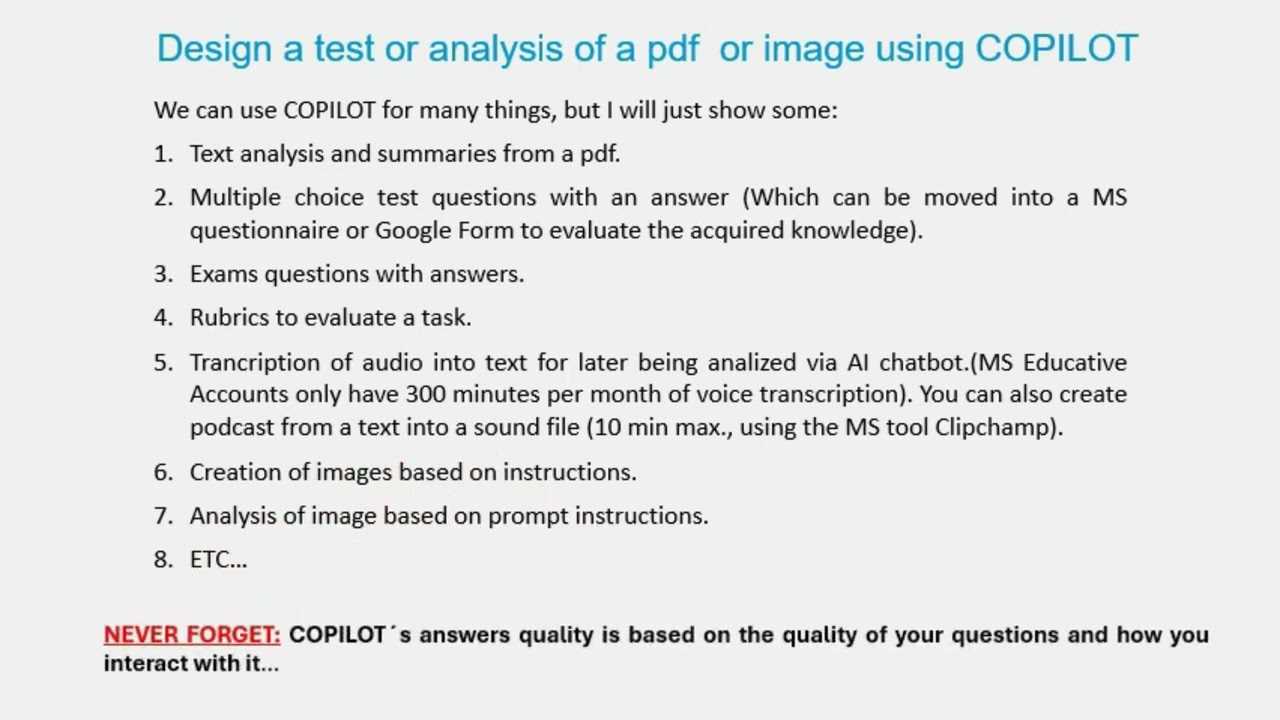
In high-pressure situations, many individuals experience difficulty retrieving the knowledge they’ve studied. Despite thorough preparation, the mind can sometimes block important details when they are most needed. This phenomenon is more common than one might think, affecting even the most diligent students and professionals.
The challenge often lies in how our brains handle information under stress. The mental load, coupled with external factors like time constraints or physical discomfort, can disrupt the normal recall process. Understanding these barriers is the first step toward improving performance and ensuring better outcomes when faced with similar circumstances.
Why Do We Forget Answers in Exams
During challenging situations, the ability to recall information can be impaired, leaving us unable to retrieve what we have learned. Even if the material is well-engrained in our minds before the event, certain factors can hinder memory retrieval when it matters most. Understanding these mechanisms is key to improving performance and overcoming such difficulties.
Stress and Anxiety Impact on Memory
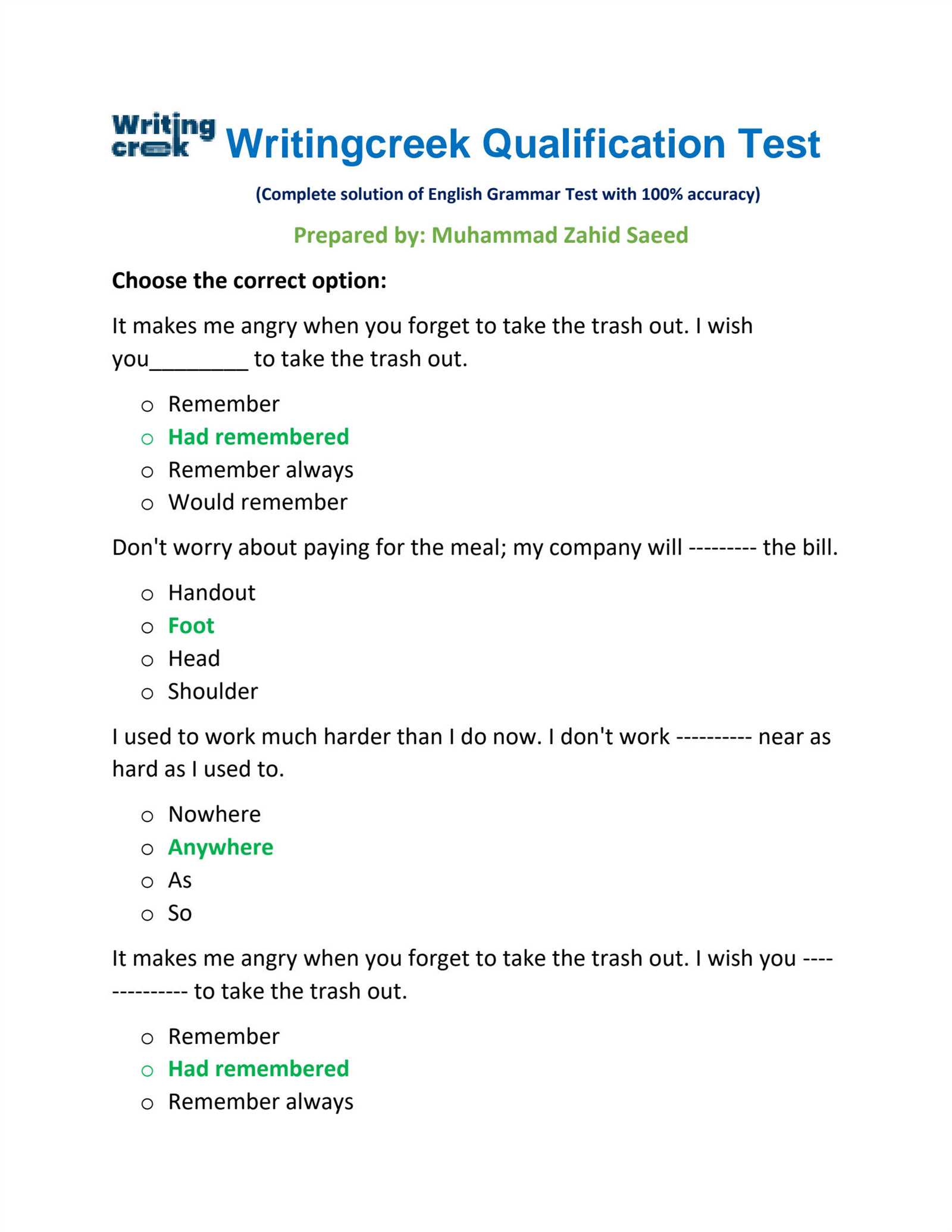
When under pressure, the brain often prioritizes immediate survival responses over cognitive functions such as recalling learned material. This is a natural reaction to stress, but it can negatively affect mental clarity. High levels of anxiety can interfere with the working memory, leading to blank moments during tests.
Lack of Preparation and Cramming
Another common reason for not being able to recall information is the lack of sufficient review or last-minute cramming. While cramming may seem like a quick solution, it doesn’t allow for proper consolidation of knowledge in long-term memory, making it harder to access crucial details when needed.
Understanding Memory and Recall
Memory is a complex process that involves encoding, storing, and retrieving information. While we may learn and retain a great deal of knowledge, the ability to recall it under pressure can be influenced by various factors. To improve performance, it’s important to understand how the brain processes and retrieves information, particularly in stressful situations.
How the Brain Stores Information
Our brain stores information through a series of interconnected networks, creating pathways that can be activated when needed. This process is influenced by the depth of learning, the context, and the frequency of recall. Some key points to consider:
- Short-Term Memory: Information that we are exposed to is initially stored in short-term memory, but it needs to be processed to move into long-term storage.
- Long-Term Memory: Knowledge becomes more firmly embedded in long-term memory through repetition and meaningful association.
- Contextual Cues: Recall is often easier when we are in the same context or environment where the learning took place.
The Role of Stress in Retrieval
Stress can interfere with the brain’s ability to access stored information. When under pressure, our body’s fight-or-flight response can dominate, redirecting resources away from cognitive functions. As a result, recalling previously learned material becomes more challenging.
- Adrenaline: This hormone prepares the body for immediate action, but it can reduce the ability to focus and retrieve information.
- Distraction: Mental distractions and physiological responses to stress can block clear thinking and prevent effective recall.
Common Causes of Forgetting Answers
There are several reasons why our ability to retrieve information can be hindered in high-pressure situations. Whether it’s due to external factors or internal mental blocks, understanding these common causes can help address the underlying issues and improve recall during crucial moments.
Stress and Pressure
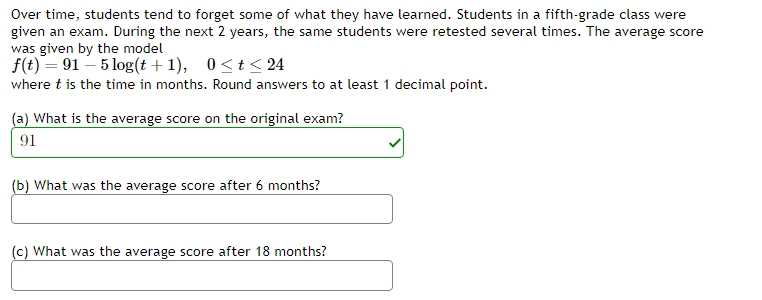
Stress is one of the most significant factors that can impair cognitive function. Under pressure, the body’s response can overwhelm the brain’s ability to access stored information. This can lead to mental blocks, where even familiar material seems difficult to recall.
- Adrenaline Surge: The body’s natural response to stress can reduce concentration and interfere with the retrieval process.
- Overload of Information: The mind struggles to process large amounts of data at once, especially when under time constraints.
Insufficient Preparation
Rushed studying or poor preparation can contribute to weak retention. When we try to cram too much information in a short period, our brains may not fully consolidate that knowledge into long-term memory.
- Last-Minute Cramming: Trying to learn too much in a short time leaves little room for meaningful processing, making it difficult to retrieve details later.
- Lack of Repetition: Without revisiting material regularly, it’s harder for the brain to reinforce connections and retain knowledge.
Distractions and Fatigue
Both mental and physical fatigue can affect performance during critical moments. Additionally, external distractions, whether in the environment or from within, can prevent full attention from being focused on the task at hand.
- Mental Exhaustion: Overworking the brain without rest can reduce cognitive sharpness and memory recall ability.
- Environmental Distractions: Noisy or uncomfortable surroundings can divert attention away from the task and hinder performance.
The Role of Stress in Memory Loss
When the body experiences stress, it activates a series of physiological changes that can disrupt cognitive functions, particularly memory retrieval. High levels of stress can affect the brain’s ability to store and access information, making it more difficult to recall what has been learned, especially in high-pressure situations.
Stress triggers the release of hormones like cortisol and adrenaline, which are designed to help the body respond quickly to threats. However, these hormones can have negative effects on the brain, especially on areas responsible for memory and focus.
| Effect of Stress on Memory | Explanation |
|---|---|
| Disrupted Encoding | High stress levels can make it harder to properly encode information, reducing the ability to retain details in the long term. |
| Impaired Retrieval | The release of stress hormones can interfere with the brain’s ability to access stored information when it is needed the most. |
| Reduced Focus | Stress makes it more difficult to concentrate, which in turn affects the ability to recall relevant information during critical moments. |
How Anxiety Affects Exam Performance
Anxiety is a natural response to stress, but when experienced in high-pressure situations, it can negatively impact cognitive performance. In particular, the physical and mental effects of anxiety can interfere with the ability to think clearly, recall information, and concentrate effectively during critical moments.
The Physical Impact of Anxiety
When anxious, the body’s “fight or flight” response is activated, leading to an increase in heart rate, shallow breathing, and muscle tension. These physical symptoms can make it difficult to remain calm and focused, which is essential for clear thinking. Additionally, anxiety can lead to:
- Increased Heart Rate: The body’s heightened state can make it harder to stay focused on the task at hand.
- Shallow Breathing: Stressful breathing patterns limit oxygen flow to the brain, reducing mental clarity.
The Mental Effects of Anxiety
Anxiety can also directly affect mental processes such as memory recall and problem-solving. The intense worry and fear of failing can make it more difficult to retrieve learned information, even if it was well-prepared in advance. The key mental effects of anxiety include:
- Impaired Memory Retrieval: Anxiety can cause mental blocks, making it challenging to remember even familiar material.
- Reduced Concentration: Persistent worry can disrupt focus, making it hard to stay on track during critical tasks.
Impact of Poor Sleep on Memory
Sleep plays a crucial role in the consolidation of memories, and a lack of rest can severely hinder our ability to recall information when needed. Without adequate sleep, the brain struggles to process and store the information we have learned, which can affect performance during critical moments.
During sleep, the brain organizes and strengthens new memories, making them easier to access later. However, when sleep is insufficient or disrupted, this process is compromised, leading to difficulties with retention and recall. Poor sleep can also increase the likelihood of mental fatigue, which further impairs cognitive function.
The Influence of Time Pressure
Time constraints can have a significant impact on cognitive performance, especially when it comes to recalling information quickly and accurately. The pressure to complete tasks within a limited timeframe can disrupt the brain’s normal functioning, leading to mistakes or lapses in memory retrieval.
When faced with tight deadlines, the brain shifts focus from problem-solving and deep thinking to quick decision-making and survival instincts. This shift can prevent us from accessing the most relevant information or processing complex details effectively, ultimately affecting overall performance.
Why Cramming Doesn’t Work Long-Term
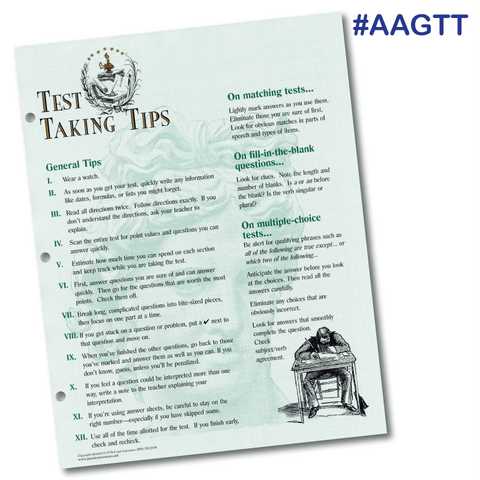
Last-minute studying may provide a temporary boost in performance, but it often fails to produce lasting results. When we try to absorb too much information in a short period, the brain struggles to consolidate the material into long-term memory. As a result, retention tends to be weak, and the information is easily forgotten once the pressure is over.
Shallow Learning vs. Deep Understanding
Cramming often leads to surface-level learning rather than a deep understanding of the material. In such cases, the brain may only store fragmented pieces of information that lack the necessary context for long-term retention. The key to better recall is to engage with the material in a meaningful way, ensuring that the knowledge is properly integrated into existing frameworks in the brain.
- Superficial Recall: Quick memorization techniques may help for immediate recall but don’t allow for true comprehension.
- Lack of Connection: Information learned in a rushed manner is less likely to be linked to prior knowledge, making it harder to retrieve later.
The Role of Consistent Study Habits
To retain information effectively, consistent study habits are essential. Spacing out learning sessions and revisiting material regularly allows the brain to reinforce neural pathways, increasing the likelihood that the information will be retained for the long term. Unlike cramming, this approach leads to deeper understanding and better recall when it’s needed most.
Effects of Distractions During Study
Distractions, whether external or internal, can significantly hinder the learning process. When our attention is divided, the brain struggles to encode information effectively, which can lead to poor retention and difficulties recalling material later. Even seemingly small interruptions can have a lasting impact on how well we absorb and retain new knowledge.
External distractions, such as noise or interruptions from other people, can make it harder to focus on the task at hand. Similarly, internal distractions, like worry or multitasking, take mental energy away from learning and can prevent the brain from fully processing information.
- Reduced Focus: Constant disruptions make it difficult to maintain deep concentration, which is necessary for efficient learning.
- Increased Cognitive Load: Juggling multiple tasks or thoughts at once increases mental fatigue, leading to poorer information retention.
To optimize study sessions, it’s essential to create a distraction-free environment and prioritize full engagement with the material. This not only improves understanding but also strengthens memory, making it easier to recall information when needed.
How Practice Enhances Memory Retention
Consistent practice is one of the most effective ways to improve the ability to recall information. The more we engage with the material, the stronger the neural pathways in the brain become, making it easier to retrieve knowledge when necessary. Repetition and active recall allow the brain to process information more deeply, reinforcing memory retention over time.
Practice not only helps to retain facts but also improves problem-solving skills and the ability to apply knowledge in different contexts. By revisiting information regularly, we ensure that it remains fresh and accessible, especially during high-stakes moments.
| Practice Method | Effect on Memory Retention |
|---|---|
| Spaced Repetition | Reviewing material at increasing intervals strengthens long-term retention and reduces forgetting. |
| Active Recall | Testing yourself actively improves memory retrieval by reinforcing neural connections related to the information. |
| Interleaving | Mixing different topics or concepts during practice enhances the brain’s ability to differentiate and retain knowledge. |
By incorporating these practices into study routines, individuals can build a more reliable and lasting memory, which leads to better performance under pressure.
The Role of Diet in Brain Function

What we eat directly impacts our brain’s ability to function optimally. A balanced diet provides the essential nutrients that support cognitive processes such as memory, concentration, and problem-solving. Without proper nutrition, the brain may struggle to process and retain information, which can affect overall performance in high-pressure situations.
Key Nutrients for Cognitive Health
Certain vitamins, minerals, and fatty acids are particularly important for maintaining brain health. These nutrients support the formation of neurotransmitters, improve blood flow to the brain, and help protect against cognitive decline. Key nutrients include:
- Omega-3 Fatty Acids: Found in fish, flaxseeds, and walnuts, these fats are essential for brain cell structure and communication.
- Antioxidants: Present in berries, nuts, and leafy greens, antioxidants protect the brain from oxidative stress, which can impair memory.
- Vitamin B Complex: B vitamins are crucial for the production of neurotransmitters and for maintaining healthy nerve function.
Effects of Poor Diet on Cognitive Performance
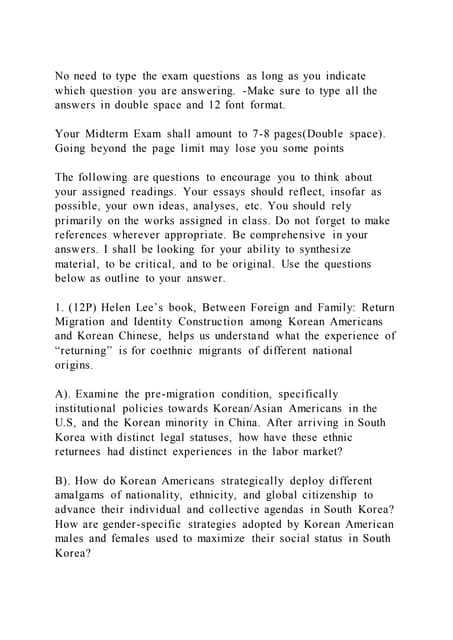
A diet lacking in these essential nutrients can have detrimental effects on cognitive function. Insufficient intake of vitamins and minerals may lead to sluggish thinking, poor memory retention, and difficulty concentrating. Moreover, high sugar and processed food intake can lead to inflammation, impairing brain function and hindering information processing.
- Impaired Memory: A lack of proper nutrients can cause the brain to struggle with encoding and retrieving information effectively.
- Reduced Focus: A diet high in refined sugars and unhealthy fats can cause energy crashes, leading to difficulty maintaining attention.
Why Mental Fatigue Leads to Forgetfulness
Extended periods of intense mental effort can lead to cognitive exhaustion, making it difficult for the brain to retrieve information efficiently. When the brain is fatigued, its ability to process and recall details is compromised, leading to lapses in memory. This phenomenon occurs because mental fatigue reduces the brain’s capacity for concentration and focus, which are essential for storing and accessing knowledge.
Mental exhaustion often results from prolonged focus without sufficient breaks or rest. As the brain tires, it becomes less effective at encoding new information and more prone to errors when trying to recall learned material. Additionally, the depletion of cognitive resources increases the likelihood of memory blocks and slow thinking.
- Reduced Cognitive Resources: Fatigue diminishes the brain’s ability to allocate attention, weakening memory performance.
- Impaired Attention: Mental tiredness disrupts the ability to concentrate, hindering effective processing and storage of information.
To prevent forgetfulness caused by mental fatigue, it’s crucial to incorporate regular breaks and ensure adequate sleep, as these practices help replenish cognitive resources and improve focus.
The Importance of Test-Taking Strategies
Having a clear plan during assessments can significantly impact performance. The way individuals approach a test can influence their ability to recall information and manage time efficiently. Effective strategies help optimize mental resources, minimize stress, and improve the likelihood of success under pressure.
Key Strategies for Better Performance
Implementing certain techniques before and during a test can enhance memory recall and focus. These strategies allow individuals to navigate questions more effectively, ensuring they stay on track and avoid unnecessary confusion.
- Time Management: Allocating specific time slots to each section of a test helps avoid rushing through questions and ensures that all areas are addressed.
- Reading Instructions Carefully: Ensuring full understanding of the requirements before answering questions prevents errors caused by misinterpretation.
- Answering Familiar Questions First: Tackling questions that seem easier or more familiar boosts confidence and saves time for more complex ones.
Psychological Preparation
In addition to strategic techniques, mental readiness plays a crucial role in performance. Approaching a test with a calm, focused mindset improves the ability to think clearly and recall information accurately. Relaxation techniques, such as deep breathing or positive visualization, can help reduce anxiety and improve overall test performance.
How Mindfulness Helps Improve Focus
Practicing mindfulness can significantly enhance the ability to concentrate and stay present in the moment, which is crucial when trying to recall information. By training the mind to focus on the task at hand, individuals are better equipped to filter out distractions and improve cognitive performance. Mindfulness techniques help reduce anxiety and mental clutter, allowing for clearer thinking and more effective memory retrieval.
Engaging in mindfulness exercises can strengthen the brain’s capacity for sustained attention, promoting a calm and clear state of mind during critical situations. As a result, people can better manage stress and approach tasks with a focused mindset, ultimately improving performance.
| Mindfulness Practice | Benefit to Focus |
|---|---|
| Breathing Exercises | Calms the mind and body, reducing stress and helping maintain focus. |
| Body Scans | Increases awareness of bodily sensations, grounding the mind and improving concentration. |
| Focused Attention | Strengthens the ability to maintain sustained attention, enhancing cognitive performance. |
By incorporating mindfulness techniques into daily routines, individuals can boost their mental clarity and improve focus during high-pressure situations, leading to better memory recall and decision-making ability.
How to Overcome Memory Blocks During Exams
Memory blocks can occur when the brain is under stress or overwhelmed, making it difficult to access information despite having studied it thoroughly. These blocks can happen during high-pressure situations, often when the mind is racing or anxious. However, there are effective techniques that can help break through these cognitive barriers and restore mental clarity.
By employing strategies to calm the mind and refocus attention, individuals can improve their chances of recalling the information they need. Techniques such as relaxation exercises, visualization, and taking strategic pauses can all help to reduce mental stress and unlock memory recall when needed most.
| Technique | Benefit |
|---|---|
| Deep Breathing | Helps calm the nervous system and reduces anxiety, allowing for clearer thinking. |
| Visualization | Mentally retracing steps or imagining the information can trigger memory recall. |
| Taking Short Breaks | Resting briefly helps the brain reset, improving concentration and memory access. |
In addition, staying hydrated and maintaining a positive mindset can further support cognitive function. By practicing these methods regularly, individuals can reduce the likelihood of experiencing memory blocks and improve overall performance under pressure.
The Power of Visualization Techniques
Visualization is a powerful mental tool that can enhance memory recall and performance by creating vivid mental images of the information or situations you want to remember. This technique engages both the mind and body, helping to solidify memories and improve focus by mentally rehearsing the task at hand. By picturing success or mentally walking through the material, individuals can build a stronger connection to the content, which aids in retrieval when needed most.
One of the key benefits of visualization is its ability to reduce anxiety. By imagining a calm, confident approach to recalling information, individuals can replace stress with a sense of control, helping to unlock memory even in high-pressure situations.
- Rehearsing Key Concepts: Mentally walking through the content before recalling it can reinforce the information in your mind, making it easier to retrieve.
- Creating Mental Images: Associating information with vivid, memorable imagery helps strengthen neural pathways and makes recall more accessible.
- Visualization of Success: Picturing yourself successfully recalling information during a critical moment boosts confidence and reduces performance anxiety.
Incorporating visualization techniques into study routines can enhance the ability to retain and retrieve information, ultimately leading to greater success during assessments and other important events.
Building Stronger Memory Habits for Success
Developing consistent memory-enhancing habits is key to improving mental performance and recall ability. These habits not only help strengthen memory over time but also make it easier to retrieve information when needed. By incorporating certain practices into daily routines, individuals can create a foundation for sustained cognitive improvement, leading to better outcomes in any challenging situation.
Establishing strong memory habits requires intentional effort and regular practice. Simple lifestyle changes such as proper sleep, balanced nutrition, and consistent mental exercises can significantly improve memory function. Additionally, adopting effective study strategies ensures that the information is properly encoded and accessible when required.
- Regular Review: Revisiting material at spaced intervals helps reinforce long-term memory retention and reduces the likelihood of forgetting important details.
- Active Learning: Engaging with the material through discussions, teaching others, or applying knowledge to real-life scenarios can strengthen memory connections.
- Proper Sleep: Ensuring adequate rest allows the brain to consolidate new information and improve recall.
By making these habits a part of daily life, individuals can enhance their ability to retain information and approach tasks with greater confidence and focus.